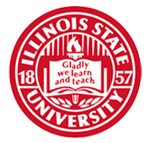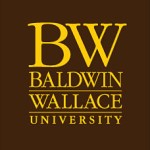Abstract
Speech-language pathologists have an ethical responsibility to work with clients with hearing loss. Therefore, speech-language pathology (SLP) students must receive specific education and training in working with this population. SLP students may have low self-efficacy about their ability to work with clients with hearing loss if they haven’t participated in specific training. Interprofessional education utilizing peer teaching by doctor of audiology (AuD) students is one method for helping SLP students learn specific skills to address hearing loss in a clinical setting. The purpose of this study was to investigate SLP graduate students' self-efficacy with working with individuals with hearing loss; SLP student perception of an interprofessional, peer-taught, experiential learning day (ELD) focused on skills related to serving individuals with hearing loss; and AuD peer teacher experiences. The ELD focused on developing skills and knowledge related to the insertion, troubleshooting, and maintenance of hearing aids. It also involved the exploration of hearing assistive technology, as well as information on hearing aids and hearing protection. The learning experience included multiple stations utilizing simulation, experiential learning, and AuD peer teaching. Results from this investigation suggest that an ELD benefits both SLP and AuD students. Specifically, SLP students reported increased self-efficacy for all tasks practiced, and AuD peer teachers reported increased confidence with teaching and a desire to teach again. Student questionnaire ratings suggested that SLP students enjoyed learning from AuD peer teachers, felt the ELD was beneficial to their learning, and thought they were gaining crucial skills for future practice. It appears that using an ELD with AuD peer teachers is a beneficial way to teach SLP students skills for working with clients with hearing loss.
Recommended Citation
Stead, A.,
Tinsley, J.,
Westrick, T.,
Olson, E.,
Alfieri, A.,
&
Sams, L.
(2024).
Boosting Confidence in Hearing Loss Services Through an Interprofessional Simulation led by Peer Instructors.
Teaching and Learning in Communication Sciences & Disorders, 8(1).
DOI: https://doi.org/10.61403/2689-6443.1301




